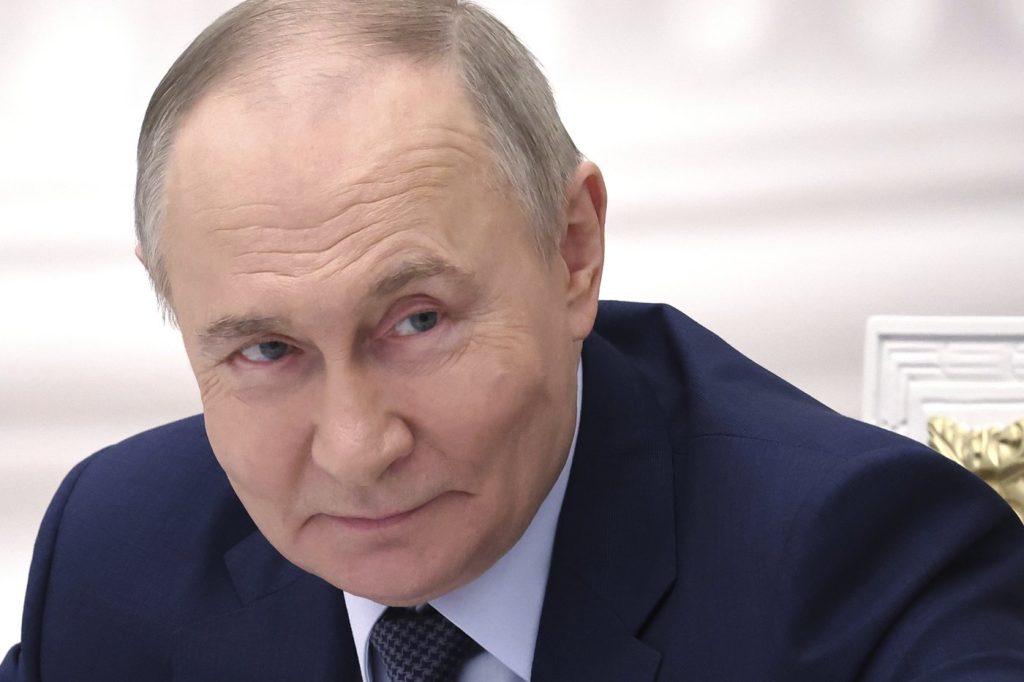Russian President Vladimir Putin's approach in the ongoing peace talks with Ukraine is characterized by his harsh demands and continued military aggression. Despite making overtures suggesting willingness for dialogue, he insists on terms that Ukraine and its Western allies deem unacceptable. His insistence on a settlement that favors Russia is evident as he continues to bombard Ukraine with missiles and drones while making maximalist demands.
At the same time, Putin's interactions with former U.S. President Donald Trump indicate a careful balancing act. While he has praised Trump’s diplomatic efforts, he simultaneously seeks to exert pressure on Ukraine. Trump's shift in U.S. policy regarding Russia, marked by his willingness to engage with Putin while criticizing Ukrainian President Volodymyr Zelenskyy, raises concerns among Ukraine's allies. Recently, Trump expressed frustration with Putin’s escalation of air attacks, warning him that his behavior is dangerous and could lead to severe consequences.
In response, Dmitry Medvedev, a former Russian president and deputy head of Putin’s Security Council, cautioned Trump that the situation could lead to World War III. Analysts observing the dynamics between Putin and Trump suggest that both leaders are engaged in a psychological play, each believing they have a deep understanding of the other’s strategy. Fyodor Lukyanov, a Moscow analyst, posits that Putin's tactics hinge on the belief that Trump might view the Ukraine issue with less urgency, potentially leading to concessions as negotiations progress.
As the conflict intensifies, the situation on the ground in Ukraine is becoming more precarious. Ukrainian forces are already experiencing shortages in weaponry, particularly in air defense systems, making them increasingly vulnerable to Russian offensives. The front lines stretch over a thousand kilometers, with Ukrainian troops facing mounting pressure from Russian forces, particularly in the Donetsk region. Reports indicate that Russia has ramped up its military operations, likely seeking to capitalize on what it perceives as a weakening stance from the U.S. regarding support for Ukraine.
Experts predict that Russia may look to expand its operations in the approaching summer, aiming to capture more territory and impose even tougher peace conditions. Jack Watling from the Royal United Services Institute in London highlighted that the Kremlin believes its leverage over Ukraine will grow with time. He anticipates intensified efforts by Russia to secure control over the entire Donetsk region and to increase its bombing campaigns to send a clear signal to both Ukraine and Europe regarding the dire circumstances that could arise if military support continues.
Trump's apparent inclination to reduce U.S. involvement in the conflict could further undermine Ukraine's defense capabilities. As Kyiv looks to its European allies for military assistance, any reduction in U.S. support could critically hinder its ability to resist Russian advances, especially given the ongoing shortages faced by its military.
Amid these escalating tensions, Putin has set forth specific demands for peace, including the withdrawal of Ukrainian forces from the four regions of Donetsk, Luhansk, Zaporizhzhia, and Kherson, which Russia unlawfully annexed in September 2022 but does not fully control. These conditions were reiterated during talks in Istanbul on May 16, 2025, which were the first substantial discussions since the initial negotiations failed early in the war. However, such demands have been outright rejected by Ukraine and its allies, complicating any possibility for a ceasefire.
Putin's preference for a prolonged conflict is illustrated by his choice of Vladimir Medinsky, a veteran negotiator with a history of representing Russian interests in similar talks, to lead the delegation in Istanbul. Furthermore, Medinsky's remarks referencing Russia’s historical conflicts and the possibility of extended warfare serve as a reminder of Moscow's willingness to endure hardship to achieve its demands.
The current geopolitical landscape remains tense, with Russia attempting to utilize the ongoing peace discussions as a means to placate concerns while steadfastly refusing to make meaningful concessions. The stakes remain high as the conflict continues to evolve, presenting complex challenges for all parties involved.











